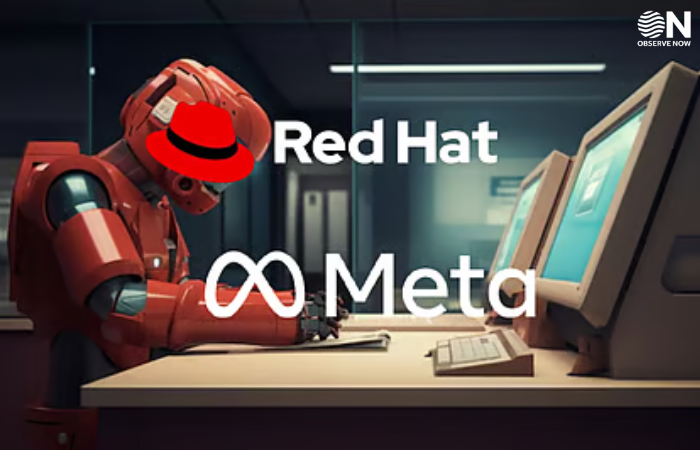Red Hat and Meta Join Forces to Accelerate Enterprise Adoption of Open Source Generative AI

At the Red Hat Summit in New Delhi, a major collaboration was announced between Red Hat, the global leader in open source solutions, and Meta, the technology powerhouse behind platforms like Facebook and Instagram. The partnership focuses on advancing generative AI through the integration of open source tools and infrastructure tailored to meet enterprise demands.
Red Hat AI will integrate Meta’s Llama 4 model family with the vLLM inference server as the central element of their collaboration. Demonstrating its dedication to open innovation, Red Hat will offer immediate support for Llama 4 on both vLLM and its AI platform. This initiative seeks to simplify the process of developing and deploying generative AI applications within enterprise settings. Generative AI is expected to become a core element of enterprise technology strategies in the coming years. A recent Gartner report predicts that by 2026, over 80% of independent software vendors will have embedded gen AI capabilities into their applications—up from less than 1% today. In response, Red Hat and Meta are working to create interoperable, open source foundations that can support this rapid adoption across varied platforms, clouds, and AI accelerators.
The collaboration centers on the open source projects Llama Stack and vLLM. Meta’s Llama Stack offers standardized APIs and building blocks to ease AI application development. Red Hat will contribute to Llama Stack’s further development, enhancing its value for developers creating agent-based AI applications. On the inference side, vLLM is emerging as a leading platform for efficiently deploying large language models (LLMs) in production. Red Hat’s involvement in vLLM has helped ensure optimized performance and early support for cutting-edge models such as Llama 4. Meta, too, is deepening its role in the project, which is a part of the broader PyTorch ecosystem—demonstrating a shared commitment to fostering an inclusive and accessible AI tooling environment.
This collaboration is more than a technical alliance. It reflects a joint vision for democratizing access to AI capabilities and simplifying the AI lifecycle, from model training to real-world deployment. Red Hat’s hybrid cloud infrastructure, combined with Meta’s AI research and development, provides enterprises with robust tools to deploy AI applications across on-premises and cloud environments.
The partnership is strategically important for both companies. Red Hat’s Mike Ferris stated it will lead to faster, more reliable, and cheaper AI deployments in various environments. Meta’s Ash Jhaveri emphasized their aim to establish Llama Stack as the standard for generative AI development.
As AI continues to reshape the technology landscape, the collaboration between Red Hat and Meta positions both companies at the forefront of open, scalable, and enterprise-ready AI innovation. Through shared development and community engagement, the two leaders are setting the stage for the next wave of digital transformation driven by generative AI.
















